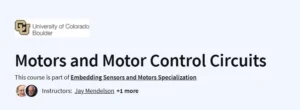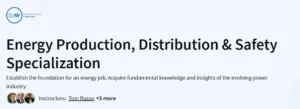Nanotechnology and Nanosensors, Part1 Course
An insightful and practical course that equips learners with essential knowledge in nanotechnology and nanosensors, fostering innovation in sensing applications.
What will you in the Nanotechnology and Nanosensors, Part1 Course
Understand the fundamental principles of nanotechnology and nanosensors.
Explore the fabrication, characterization, and manipulation of nanomaterials.
Analyze the role of nanomaterials in novel sensing applications.
Develop critical and creative thinking skills in the context of nanotechnology.
Apply knowledge of nanotechnology and nanosensors to real-world scenarios.
Program Overview
Module 1: Introduction to Nanotechnology, Part 1
Duration: ~1 hour
Definitions and key concepts of nanotechnology.
Overview of nanomaterials and their unique properties.
Classification of nanostructures: 0-D, 1-D, 2-D, and 3-D.
Module 2: Introduction to Nanotechnology, Part 2
Duration: ~1 hour
Characterization tools for nanotechnology, including AFM, SEM, and TEM.
Fabrication techniques: top-down and bottom-up approaches.
Self-assembly of nanostructures and their applications.
Module 3: Introduction to Sensors’ Science and Technology
Duration: ~2 hours
Fundamentals of sensor science and technology.
Components and classification of sensors.
Parameters for sensor characterization: accuracy, sensitivity, and more.
Introduction to sensor arrays and electronic noise.
Module 4: Metal Nanoparticles-based Sensors
Duration: ~1 hour
Properties and synthesis of metal nanoparticles.
Application of nanoparticles in DNA and biomolecule detection.
Chemi-resistors based on nanoparticles.
Medical and biological applications of gold nanoparticles.
Module 5: Quantum Dots Sensor
Duration: ~5 hours
Definition and properties of quantum dots.
Synthesis methods for quantum dots.
Sensing and imaging applications using quantum dots.
Mini-project: Nanosensors in the service of the Internet of Things (IoT).
Get certificate
Job Outlook
Nanotechnologists: Enhance understanding of nanoscale materials and their applications.
Sensor Engineers: Develop advanced sensing devices using nanomaterials.
Biomedical Engineers: Apply nanotechnology in medical diagnostics and treatment.
Material Scientists: Explore novel materials for sensor development.
Research Scientists: Conduct interdisciplinary research in nanotechnology and sensor technology.
- Comprehensive coverage of nanotechnology and sensor topics.
- Engaging content with real-world applications.
- Flexible, self-paced learning environment.
- Access to expert insights and research.
- Requires self-motivation to complete exercises.
- Limited interactive components.
Specification: Nanotechnology and Nanosensors, Part1 Course
|





